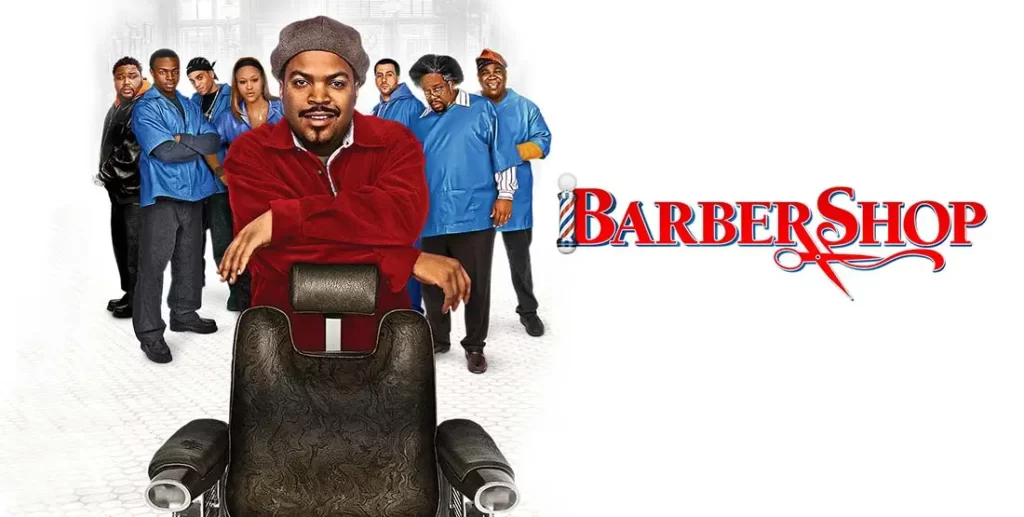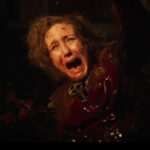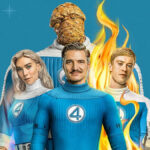The ‘Barbershop’ movie franchise, originating in the early 2000s, has been a cultural sensation, weaving tales from within the walls of a community barbershop in Chicago. These films do more than entertain; they delve deep into the heart of urban communities, addressing societal issues while infusing humor and camaraderie. The endearing characters and memorable dialogue have made the series a household name. But with its several installments and spin-offs, a common question arises among both ardent fans and casual viewers alike: “How many barbershop movies are there?” Dive into this exploration as we break down the numbers and unravel the history of this iconic series.
How Many Barbershop Movies Are There?
The “Barbershop” franchise encompasses a total of four films. Initially, it introduced audiences to three main movies: “Barbershop” in 2002, “Barbershop 2: Back in Business” in 2004, and “Barbershop: The Next Cut” in 2016. These films revolve around a barbershop in Chicago owned by Calvin Palmer, portrayed by Ice Cube, and explore the daily lives and dynamics of the shop’s employees and customers. Additionally, the franchise expanded with a spin-off film titled “Beauty Shop” in 2005, which shifts the focus to Gina Norris, a character played by Queen Latifah, navigating the beauty salon industry. This spin-off explores similar themes in a different setting, providing a fresh perspective while maintaining the comedic and heartfelt essence of the original series.
All Barbershop Movies in Order of Release Date
Here are the “Barbershop” movies in order of release date with the specific day, month, and year:
- Barbershop – September 13, 2002
- Barbershop 2: Back in Business – February 6, 2004
- Barbershop: The Next Cut – April 15, 2016
Spin-off and related movie:
- Beauty Shop – March 30, 2005
- Barbershop TV Series (2005-2006)
Barbershop (2002)
“Barbershop” is a comedy-drama film released in 2002, directed by Tim Story and written by Mark Brown, Don D. Scott, and Marshall Todd. The film is set in a barbershop on the South Side of Chicago and revolves around the social life therein. The main character, Calvin Palmer Jr., portrayed by Ice Cube, struggles with keeping the barbershop, inherited from his father, operational amidst falling revenues and his interest in get-rich-quick schemes. Calvin sells the barbershop to a loan shark, Lester Wallace, without informing his employees or customers, only to realize its vital role in the community and attempt to retrieve it. The film explores themes of community, loyalty, and moral dilemmas.
The film was produced by George Tillman Jr., Robert Teitel, and Mark Brown, and stars notable actors such as Ice Cube, Anthony Anderson, Sean Patrick Thomas, Eve, and Cedric the Entertainer. It was released by MGM Distribution Co. and garnered positive reviews from critics, grossing $77 million worldwide.
Barbershop 2: Back in Business (2004)
“Barbershop 2: Back in Business” is the 2004 sequel to the popular 2002 comedy-drama “Barbershop.” Directed by Kevin Rodney Sullivan, the film continues to follow the lives of Calvin Palmer Jr., played by Ice Cube, and his ensemble of barbers in the South Side of Chicago.
The sequel introduces a new challenge in the form of a gentrification subplot. A large, upscale salon chain called “Nappy Cutz” opens right across the street, posing a direct threat to the modest, community-focused barbershop. Calvin and his team must confront the commercialization and gentrification of their neighborhood while also grappling with the history and legacy of their shop and its importance to the community.
The cast of the original film, including Ice Cube, Cedric the Entertainer, Eve, and Sean Patrick Thomas, reprise their roles. They are joined by newcomers like Queen Latifah, who would later star in the spin-off film “Beauty Shop,” and Kenan Thompson. The film also features flashback scenes that show the barbershop’s history, adding depth to the character of Eddie, portrayed by Cedric the Entertainer, who serves as the comedic and often philosophical center of the shop.
The success of both “Barbershop” and “Barbershop 2: Back in Business” further solidified the cultural importance of these kinds of community hubs while also providing a platform for humor, heartfelt moments, and social commentary.
Barbershop: The Next Cut (2016)
“Barbershop: The Next Cut” is the third installment in the “Barbershop” film series, released in 2016. Directed by Malcolm D. Lee, the film revisits Calvin’s Barbershop, the community anchor in the South Side of Chicago. Ice Cube reprises his role as Calvin Palmer Jr., and many of the original cast members, including Cedric the Entertainer, Eve, and Sean Patrick Thomas, return. The sequel also introduces new characters, featuring performances by notable actors such as Common, Nicki Minaj, and J.B. Smoove.
In this installment, the barbershop has undergone significant changes. To survive financially, Calvin has merged his shop with the beauty salon next door, leading to a co-ed environment that brings a new dynamic and a host of new personalities into the mix. While the barbershop remains a lively center of community dialogue, the film also addresses the more somber reality of escalating violence and crime in Chicago. Calvin grapples with the decision of whether to move his own family and business to a safer neighborhood or stay and try to make a difference in the community he loves.
Beauty Shop (2005)
“Beauty Shop,” released on March 30, 2005, is a spin-off of the famous “Barbershop” film series. Directed by Bille Woodruff, this comedy film shifts the focus from the male-dominated barbershop to a beauty salon and places Queen Latifah in the lead role as Gina Norris. Gina is a stylist who first appeared in “Barbershop 2: Back in Business” and has now moved from Chicago to Atlanta to start her own salon.
In the movie, Gina quits her job at a high-end salon run by the arrogant Jorge Christophe, played by Kevin Bacon, to start her own beauty shop. She takes a leap of faith, investing all she has into a rundown salon and bringing her own flair to the business. Just like Calvin’s barbershop, Gina’s beauty shop becomes a community hub where women from all walks of life come not just for beauty treatments but also for companionship, advice, and a lively atmosphere.
The ensemble cast features a diverse group of characters, including Alicia Silverstone, Andie MacDowell, Mena Suvari, and Alfre Woodard, who bring their own quirks and backgrounds to the salon. Each character offers a glimpse into different facets of womanhood, be it through their careers, relationships, or personal struggles. The beauty shop serves as a microcosm of the outside world, where issues of race, class, and gender are discussed openly and humorously.
“Beauty Shop” extends the thematic elements of community and self-expression found in the “Barbershop” series while adding its own unique twist by focusing on female characters and their specific challenges and triumphs. The film serves as both an entertaining comedy and a celebration of female entrepreneurship and empowerment.
Barbershop TV Series (2005-2006)
The “Barbershop” TV series aired briefly from 2005 to 2006 as an extension of the popular film franchise. The show was set in the same barbershop on Chicago’s South Side and aimed to capture the essence of the movies by blending humor with social commentary. Produced by Showtime, the series featured a mix of new characters and some returning ones, although most were played by different actors rather than the original film cast.
Like the movies, the TV series used the barbershop as a backdrop to explore various facets of African-American culture, community dynamics, and the everyday issues facing the characters. However, without the star power of actors like Ice Cube and Cedric the Entertainer, who had become synonymous with the franchise, the series struggled to make the same impact as the films. Omar Gooding took over the role of Calvin, the owner of the barbershop, while the iconic character of Eddie was portrayed by Barry Shabaka Henley.
The format of episodic television allowed the series to delve into multiple storylines and character arcs in greater depth, exploring topics like relationships, family, politics, and social issues. Unfortunately, the “Barbershop” TV series was short-lived and was canceled after just one season. Despite its limited success, it remains a part of the “Barbershop” universe, reflecting the franchise’s attempt to extend its storytelling into different formats.
Conclusion
The ‘Barbershop’ franchise has proven itself as more than just a series of films; it stands as a testament to the vibrant, multifaceted narratives of urban life and community bonding. Over the years, it has not only entertained audiences but has also fostered a deeper understanding of cultural nuances and societal conversations. To truly appreciate its depth, one must delve into each movie and experience its unique flavor. Whether you’ve been with the series from the start or are a new explorer asking, “How many barbershop movies are there?” the ‘Barbershop’ universe offers a rich tapestry of stories waiting to be discovered and cherished.






